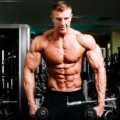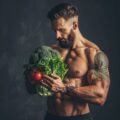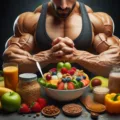Bodybuilding is more than just lifting weights and working out. It’s a complex process that requires a well-thought-out approach to nutrition and supplementation. To achieve the best results, understanding the essential ingredients that support muscle growth and recovery is critical. In this article, we’ll dive into the five key components that every bodybuilder should incorporate into their regimen.
Nutrient-Dense Proteins
Proteins are the building blocks of muscle. High-quality, nutrient-dense proteins such as chicken, turkey, lean beef, fish, and eggs should be a staple in a bodybuilder’s diet. For vegetarians and vegans, options like lentils, chickpeas, and quinoa are excellent sources. Protein supplements like whey, casein, or plant-based powders can help meet daily requirements, especially post-workout.
Complex Carbohydrates
Carbohydrates are crucial for fueling workouts and aiding recovery. Complex carbs such as sweet potatoes, brown rice, oats, and whole-grain pastas provide a sustained energy release. They also help replenish glycogen stores in muscles, which is essential for growth and endurance.
Healthy Fats
Fats are often misunderstood in bodybuilding. However, healthy fats like those found in avocados, nuts, seeds, and olive oil are vital for hormone production, including testosterone, which plays a significant role in muscle building. Omega-3 fatty acids, particularly from fish oil supplements, are beneficial for joint health and inflammation reduction.
Vitamins and Minerals
Micronutrients play pivotal roles in various bodily functions including muscle contraction, bone health, and oxygen transport. A diet rich in fruits, vegetables, and fortified foods, along with a high-quality multivitamin, can help meet these micronutrient needs. Particular attention should be paid to calcium, magnesium, iron, and vitamins D and B complex.
Hydration and Electrolytes
Proper hydration is often overlooked in bodybuilding. Water is essential for every cellular function, including muscle function. Electrolytes, such as sodium, potassium, and magnesium, are lost through sweat and must be replenished to maintain fluid balance and prevent cramps and injuries.
FAQs
How Much Protein Do I Need for Bodybuilding?
The recommended dietary allowance (RDA) for protein is 0.8 grams per kilogram of body weight, but bodybuilders may need up to 1.6 grams per kilogram to support muscle growth and repair.
Can I Rely Solely on Supplements for My Nutrition?
No, supplements should complement a balanced diet, not replace it. Whole foods provide a complex array of nutrients that supplements can’t fully replicate.
Are Carbohydrates Bad for Bodybuilding?
Not at all. While low-carb diets are popular, carbohydrates are essential for energy and recovery in bodybuilding. The key is to choose complex carbohydrates over simple sugars.
What Type of Fats Should I Focus on in My Diet?
Focus on unsaturated fats from plant sources and fatty fish, which support heart health and can aid in muscle growth.
Is It Necessary to Take a Multivitamin?
While it’s best to get your vitamins from food, a multivitamin can help ensure you’re meeting your daily requirements, especially if your diet lacks variety.









